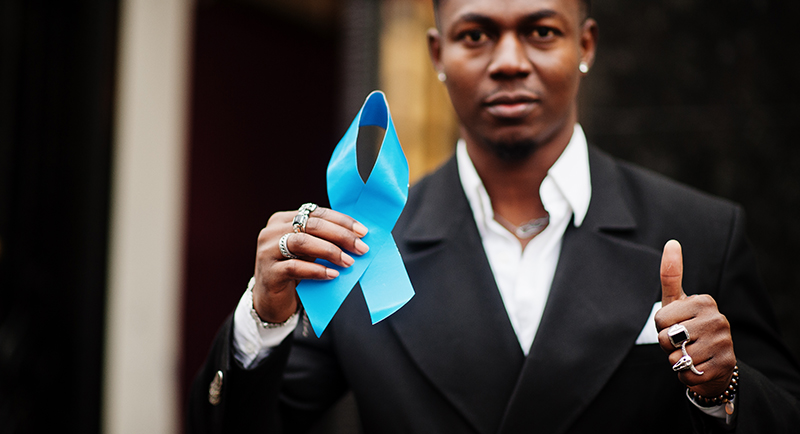Lifestyle choices promoting testicular health
Men understand the importance of protecting their testicles. Precariously situated on a man’s body, the testicles are at risk of physical injury, testicular cancer, especially in young men, and other medical conditions. Responsible for making sperm and producing the hormone testosterone, the testicles play an invaluable role in male reproduction and the physical characteristics of a man’s body.
There are certain steps each man can take helping to protect and promote the health of the testicles
These steps are vital for keeping these two small organs in tip-top shape to perform their functions.
Here are lifestyle choices men can do promoting their testicular health:
- Know how to do a monthly testicular self-exam
Testicular cancer will affect about one in every 250 men during their lifetime. Men over the age of fifty rarely develop this cancer. Most cases of this disease are diagnosed in men ages 15-39, with the average age at diagnosis being 33.
A common symptom of testicular cancer is often a painless lump or swelling in a testicle. This swelling or lump may be no bigger than a pea, with an irregular thickening feel found on a testicle. Additional symptoms might include:
- Pain or an ache noticed in the back, groin, lower abdomen, or scrotum
- Testicular changes in size or feel
- A feeling of heaviness in the scrotum or noticeable bloating in the lower abdomen
Here’s what men can do:
Learn how to perform a monthly testicular self-exam. Any changes noticed should be evaluated as soon as possible. When caught early, there is an excellent chance of survival with a full recovery.
- Do not smoke
Cigarette smoking has a host of health problems associated with this habit, and increasing the risk of testicular cancer is one of them. This includes e-cigarettes and smokeless tobacco (chewing tobacco), as each contains nicotine. Nicotine from these products can cause irreparable damage to blood vessels, increasing a man’s risk of testicular cancer and can delay healing after cancer treatment. In addition, research has shown that smoking marijuana daily may increase the risk of testicular cancer. The longer a man has smoked marijuana, the higher the chance of developing this disease – daily marijuana joints for at least ten years increase this risk by 36 percent. Like cigarettes, marijuana releases carcinogens causing a greater risk of cancer.
Here’s what men can do:
If you currently smoke cigarettes or marijuana, ask your healthcare provider how to quit.
- Eat foods rich in antioxidants
Male infertility can be affected by food choices men make. Too many ultra-processed foods, such as pizza, burgers, fries, and soda, do not improve testicular health. The trouble with ultra-processed foods is they are packed with excess sugar, salt, and unhealthy fats and are devoid of protein and fiber. This is the perfect set-up for increasing inflammation and oxidative stress, which can negatively impact male fertility, especially affecting testicular tissue susceptible to oxidative stress.
Here’s what men can do:
Since oxidative stress has a strong link to many chronic diseases, including cancers, men should include everyday foods rich in antioxidants. The best foods to choose from are fruits and vegetables such as leafy greens, blueberries, raspberries, prunes, oranges, Brussels sprouts, broccoli, peppers, and eggplant. Antioxidants improve testicular health by breaking down oxidative stress by helping a man’s body fight off free radicals created from oxidative stress.
- When playing sports, wear protection
Whatever a man’s age and depending on the sport, men should wear protection for their eyes, head, and even hands. But what about wearing protective equipment to protect their genitals? Significant injuries can occur if a man is not wearing protection to his penis or testicles, such as testicular contusion or a ruptured testicle during physical activity. Injuries sustained during a sporting event could also have lasting ramifications for a man’s fertility. For example, wearing protective gear for the testicles makes sense in contact sports such as football, hockey, rugby, soccer, and mixed martial arts. However, even running, bicycling, and a quick game of basketball can jostle a man’s private parts.
Here’s what men can do:
The answer for men is to wear a protective cup or jockstrap that helps prevent serious injury to a man’s testicles. A protective cup is composed of a hard outer shell lined with padding protecting the groin area. Jockstraps, also known as athletic supporters, resemble underwear in the front with a snug-fitting front pouch keeping a man’s manhood in place.
Dr. David Samadi is the Director of Men’s Health and Urologic Oncology at St. Francis Hospital in Long Island. He’s a renowned and highly successful board certified Urologic Oncologist Expert and Robotic Surgeon in New York City, regarded as one of the leading prostate surgeons in the U.S., with a vast expertise in prostate cancer treatment and Robotic-Assisted Laparoscopic Prostatectomy. Dr. Samadi is a medical contributor to NewsMax TV and is also the author of The Ultimate MANual, Dr. Samadi’s Guide to Men’s Health and Wellness, available online both on Amazon and Barnes & Noble. Visit Dr. Samadi’s websites at robotic oncology and prostate cancer 911.

